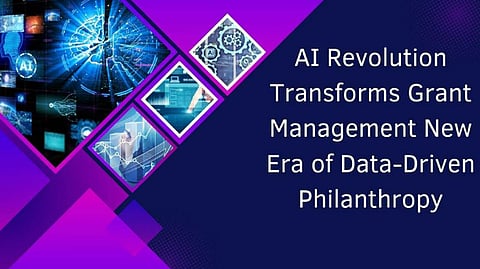

In this digital world, where technology constantly reshapes our operations, the philanthropic sector stands at a transformative crossroads. A comprehensive research analysis by Davinder Pal Singh, a technical architect, illuminates how artificial intelligence revolutionizes grant management. His study reveals compelling evidence of AI's profound impact on the philanthropic landscape, where global funding has reached an unprecedented $2.3 trillion in 2023, marking a significant shift from traditional manual processes to data-driven, intelligent systems that promise greater efficiency and impact.
The traditional grant management landscape has long grappled with inefficiencies, with organizations spending an average of 23 hours per grant application on administrative tasks. AI-powered solutions now address these challenges head-on, reducing application processing times by up to 75% while maintaining 90% accuracy in initial screening processes. This technological leap enables organizations to process hundreds of applications daily, compared to the dozen or so typically handled by human reviewers.
Modern AI systems are revolutionizing decision-making in grant management through sophisticated predictive analytics. These systems can now process over 250 variables per application, achieving an impressive 81% accuracy in predicting project outcomes. The technology's ability to analyze structured and unstructured data has led to a 62% reduction in failed grants and a 37% increase in successful project completions.
Integrating Natural Language Processing (NLP) has transformed how grant proposals are evaluated. Current systems can process approximately 800 pages of grant documentation per hour, representing an 85% reduction in processing time compared to manual review. These systems achieve 89% accuracy in English and 84% in regional languages, making grant programs more inclusive and accessible across linguistic barriers.
AI-driven risk assessment capabilities have revolutionized the due diligence process. Machine learning algorithms identify potential compliance risks with 83% accuracy while reducing assessment time by 58%. Financial risk modeling has become increasingly sophisticated. Modern systems analyze historical financial data alongside real-time market indicators, achieving an 88% accuracy rate in identifying high-risk applications.
Integrating AI in portfolio management has led to remarkable improvements in tracking and optimizing grant investments. Resource allocation optimization algorithms now process complex scenarios incorporating up to 120 variables per grant, resulting in a 34% improvement in portfolio performance metrics. Impact prediction models have demonstrated 79% accuracy in forecasting project outcomes for multi-year projects.
The sector is poised for continued transformation, with 58% of large grant-making organizations planning to incorporate advanced AI capabilities by 2026. The integration of blockchain technology is expected to grow at a compound annual growth rate of 28.5% through 2025, while IoT applications are set to expand significantly, with 52% of organizations planning to incorporate sensor-based data collection by 2025.
While the benefits of AI integration in grant management are evident, organizations face multifaceted challenges during implementation. The technical hurdles range from data integration complexities to infrastructure requirements, while organizational challenges include staff resistance and resource allocation. However, structured implementation frameworks have proven to be game-changers, boosting success rates to 76% compared to 39% for organizations without formal strategies. The key lies in comprehensive staff training programs requiring 30-40 hours per employee, yield adoption rates 1.8 times higher than shortened approaches. This investment in human capital and systematic implementation strategies create a solid foundation for successful AI integration, ensuring organizations can fully leverage the technology's potential while minimizing disruption to existing operations.
Implementing AI in grants management has transformed outcomes for all stakeholders in the philanthropic ecosystem. Organizations are experiencing significant improvements with portfolio performance rising by 28% and capabilities to measure impact enhanced by 39%. Transformation is equally profound for grant applicants, who complete applications 62% faster and report significantly higher satisfaction levels - up by 68%. These measurable advantages reflect the fact that AI is not just streamlining processes but is, in fact, fundamentally changing the grant-making experience for all participants, making it more efficient and satisfying from the giving as well as the receiving perspective.
As concluded, Davinder Pal Singh's study proves the emergence and growth of AI applications within the domain of grant management and that there is a better future ahead to bring funding agencies unprecedented effectiveness in their missions in addition to increasing transparency. Transformation here goes far beyond the idea of just making technology upgrades-it represents a revolution that brings new, data-based decision-making systems coupled with automation leading to fair and effective resource usage for the largest possible social effect on communities throughout the world.
